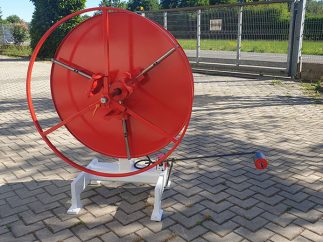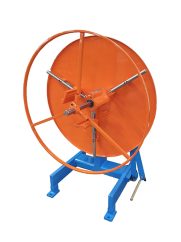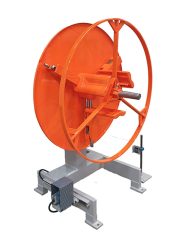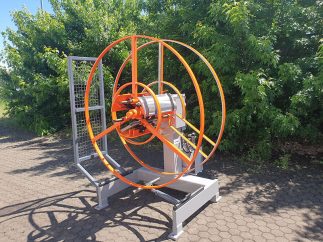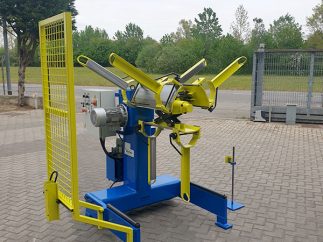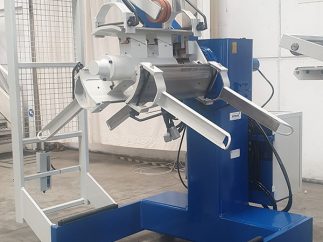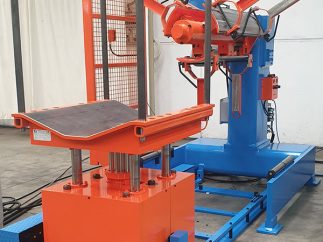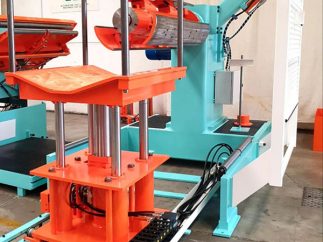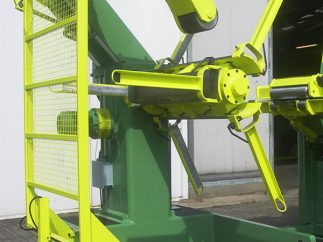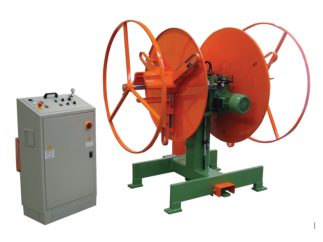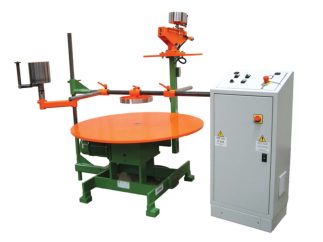Unwinders - Winders

WHY CHOOSE ELMEA UNWINDERS AND WINDERS?
- Made in Italy: Reliable and long-lasting products
- Versatile design to meet specific client requirements for dimensions and coil characteristics
- Before and after-sales support within 24 hours
- Rapid provision of spare parts to minimize downtime
- Robust structure in electro-welded steel
- Attention to detail
- Self-centering hydraulic expansion via motor-control unit built in-house
- Bronze gears in oil bath designed and manufactured in-house
- Easy to use: our machinery does not require specialist staff
All models can be manufactured without motorization. Depending on capacity, the structure is similar to the equivalent motorized model. They can only work with unwinders.
They are equipped with disc brakes to adjust the unwinding force. The brake can be manually adjusted or, on request, pneumatically with remote control. Manual self-centering expansion up to 1,000 kg; over this it can be hydraulic.
ACCESSORIES
- Hydraulic positioning motorised external pulleys to start rigid tapes
- Pneumatic press arms for tapes that tend to unravel
- Side shim roller RAR for coil containment
- Hydraulic loading cradle for self-centring very heavy rolls
- Plate supports for extended internal diameter
- Photocell handle control
- Pneumatic clutch to adjust unwinding force making coil idle/braked
- Feeler arm handle control
- Handle control with laser sensor combined with inverter for continuous speed adjustment to reduce the number of unwinder stoppages
- Inductive sensor diameter 80 handle control
- Hydraulic aligner for movement
- Pneumatic brake release with distance control for unmotorised unwinders
WINDERS FOR SHEET METAL
Winders for Sheet Metal: Enhancing Efficiency and Precision in Manufacturing
In the realm of sheet metal fabrication, winders are pivotal in ensuring both efficiency and precision. These advanced machines streamline the process of coiling and uncoiling metal sheets, making them indispensable tools for manufacturers in various industries. In this article, we explore the intricacies and benefits of winders for sheet metal.
At their core, winders are mechanical devices designed to transform flat metal sheets into coil form and vice versa. This transformation is achieved through synchronized movements, where the sheet is fed into the machine and wound onto a large drum or spool. Equipped with sophisticated tension control systems, winders ensure consistent winding quality, preventing material deformation or damage during the process.
One of the primary advantages of using winders in sheet metal fabrication is enhanced productivity. These machines can handle large volumes of material effortlessly, significantly reducing production time compared to manual methods. Additionally, winders offer precise control over tension settings, allowing manufacturers to achieve consistent results and minimize material waste. By automating the coiling and uncoiling process, manufacturers can optimize their operations and increase overall output.
Furthermore, winders contribute to improved quality control in sheet metal manufacturing. The precise tension control mechanisms prevent any wrinkles or distortions in the material, ensuring that each coil meets the required specifications. This level of precision is especially crucial when dealing with high-value materials or components that demand zero defects. By utilizing winders, manufacturers can deliver products of superior quality while maintaining high production standards.
Another key benefit of winders is their versatility. These machines can accommodate various sizes and types of sheet metal, making them suitable for a wide range of applications. Whether it’s thin aluminum sheets or heavy-duty stainless steel coils, winders can handle different materials efficiently. Moreover, some advanced models offer additional features such as automatic edge alignment and thickness measurement, further enhancing productivity and accuracy.
In conclusion, winders for sheet metal are essential tools for modern manufacturing processes. Their ability to automate the coiling and uncoiling of metal sheets not only boosts productivity but also ensures consistent quality and precision. By investing in winders, manufacturers can optimize their operations, reduce production time, minimize material waste, and deliver superior products to meet the ever-increasing demands of the market.

